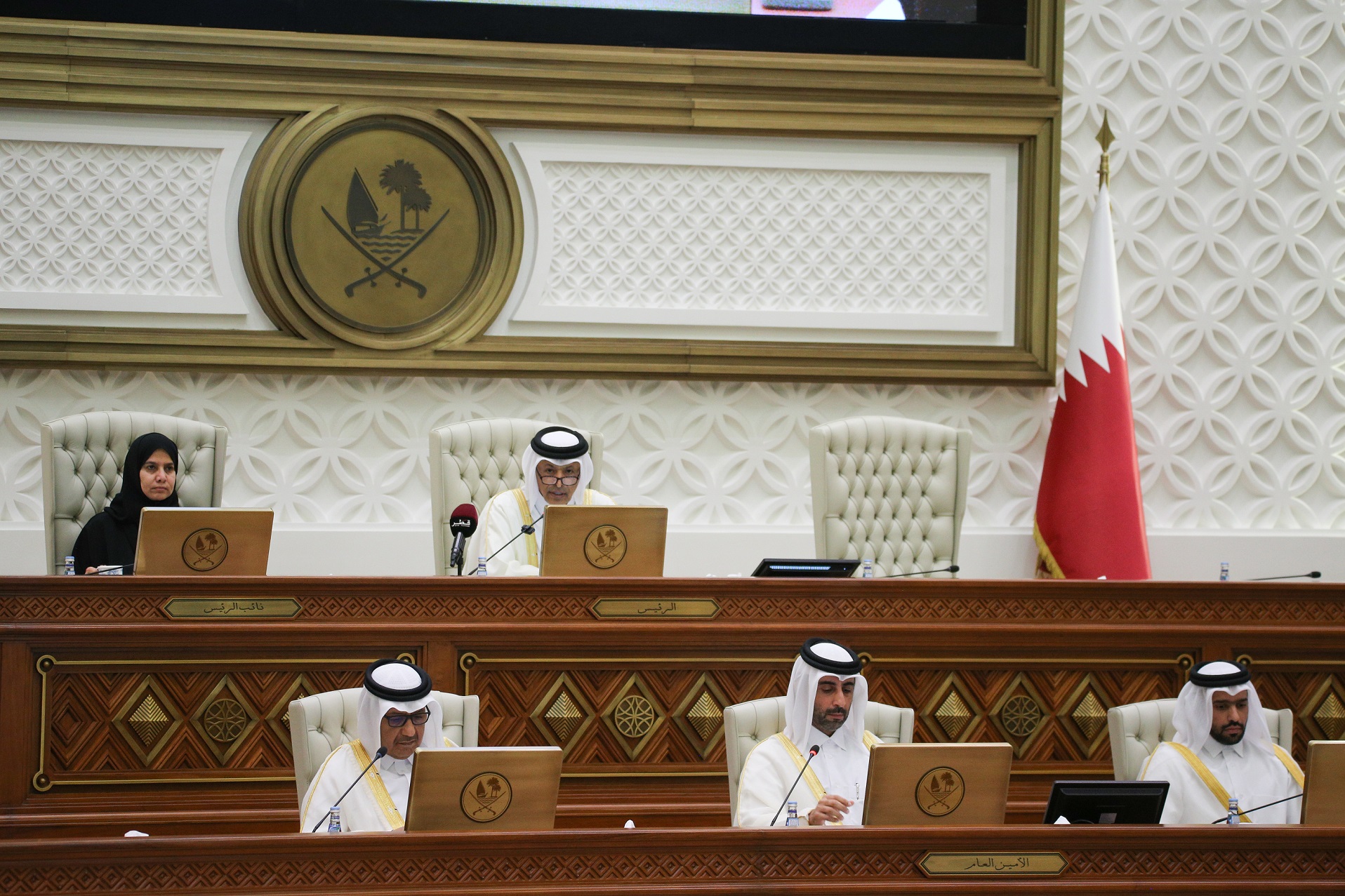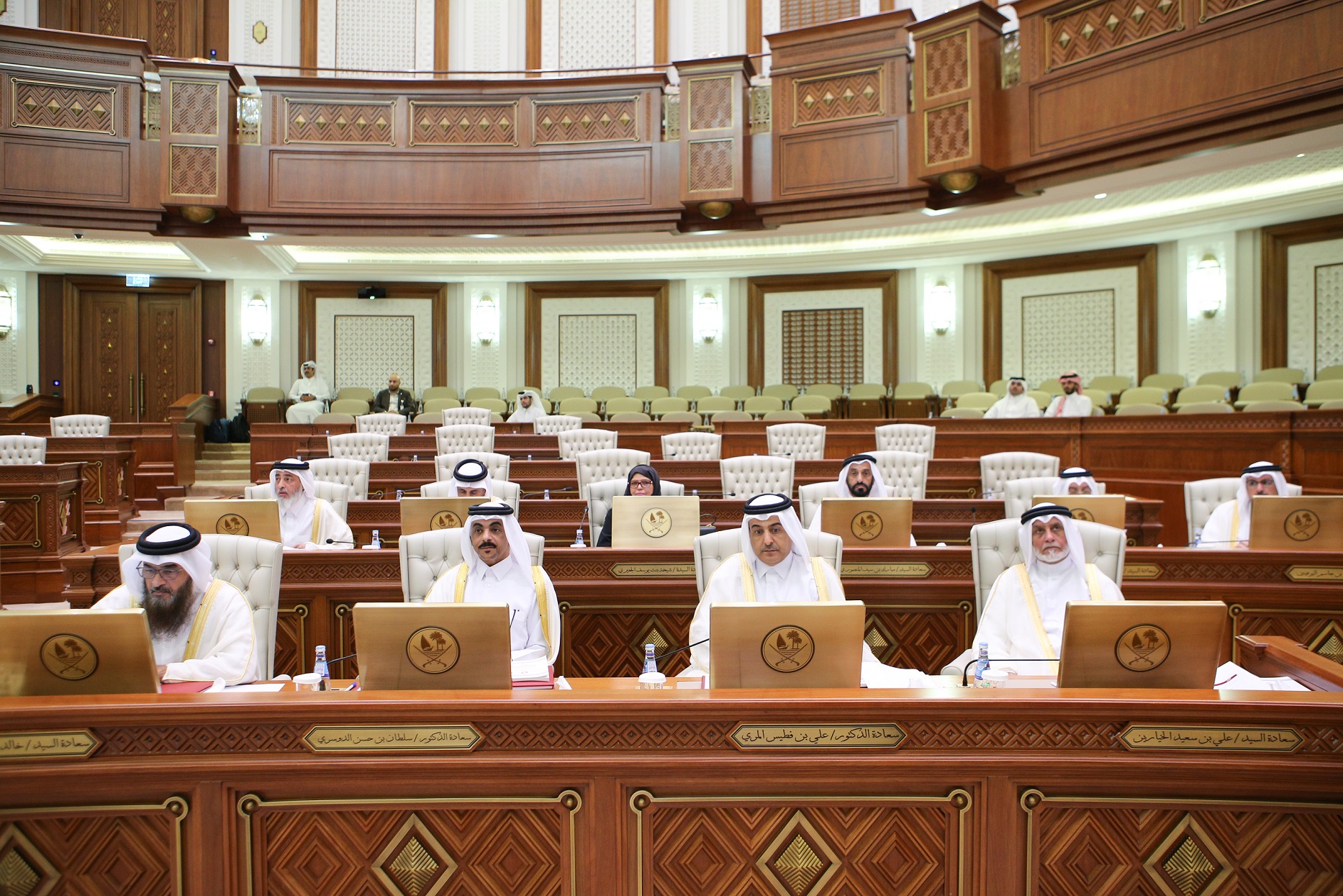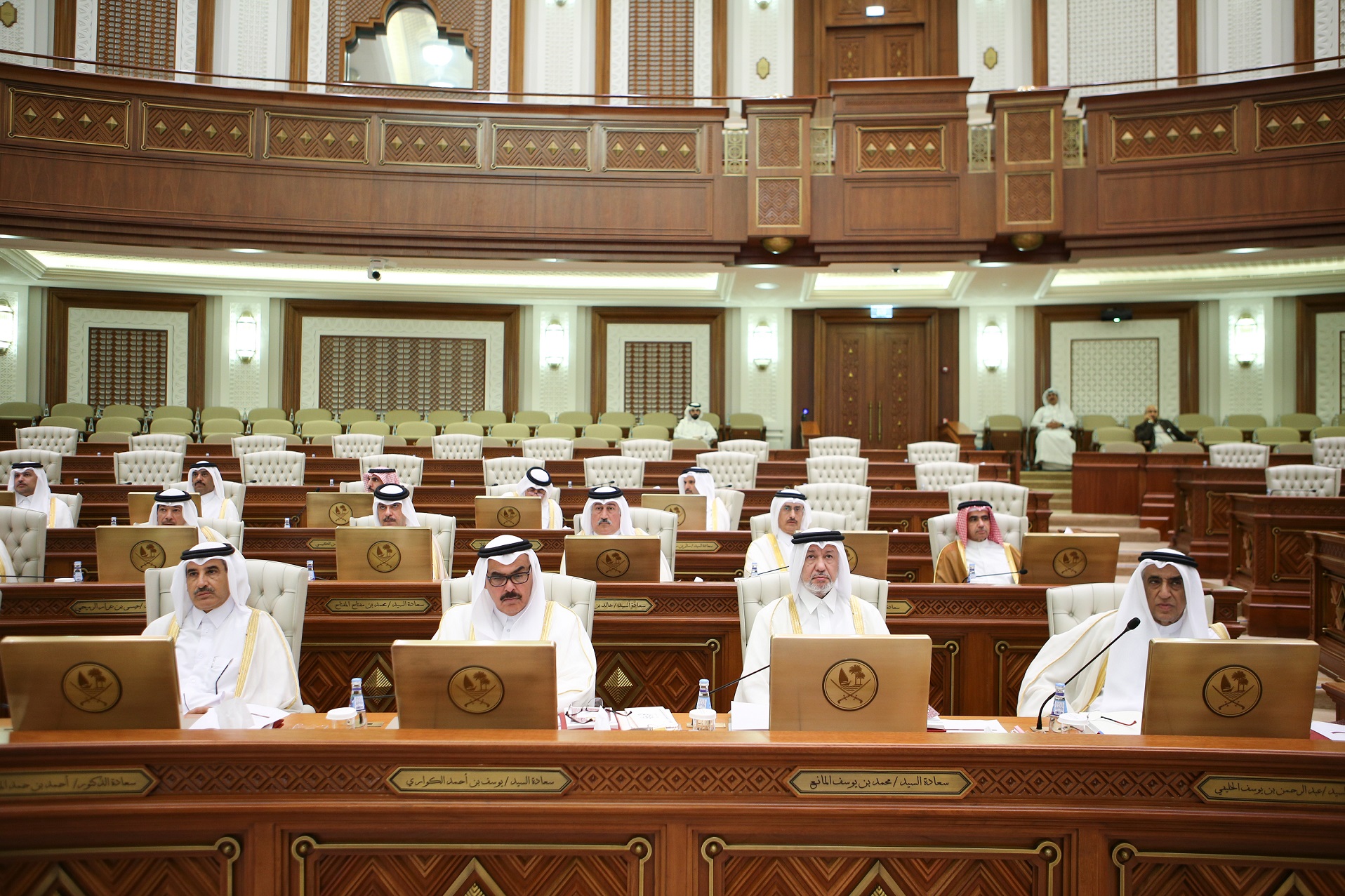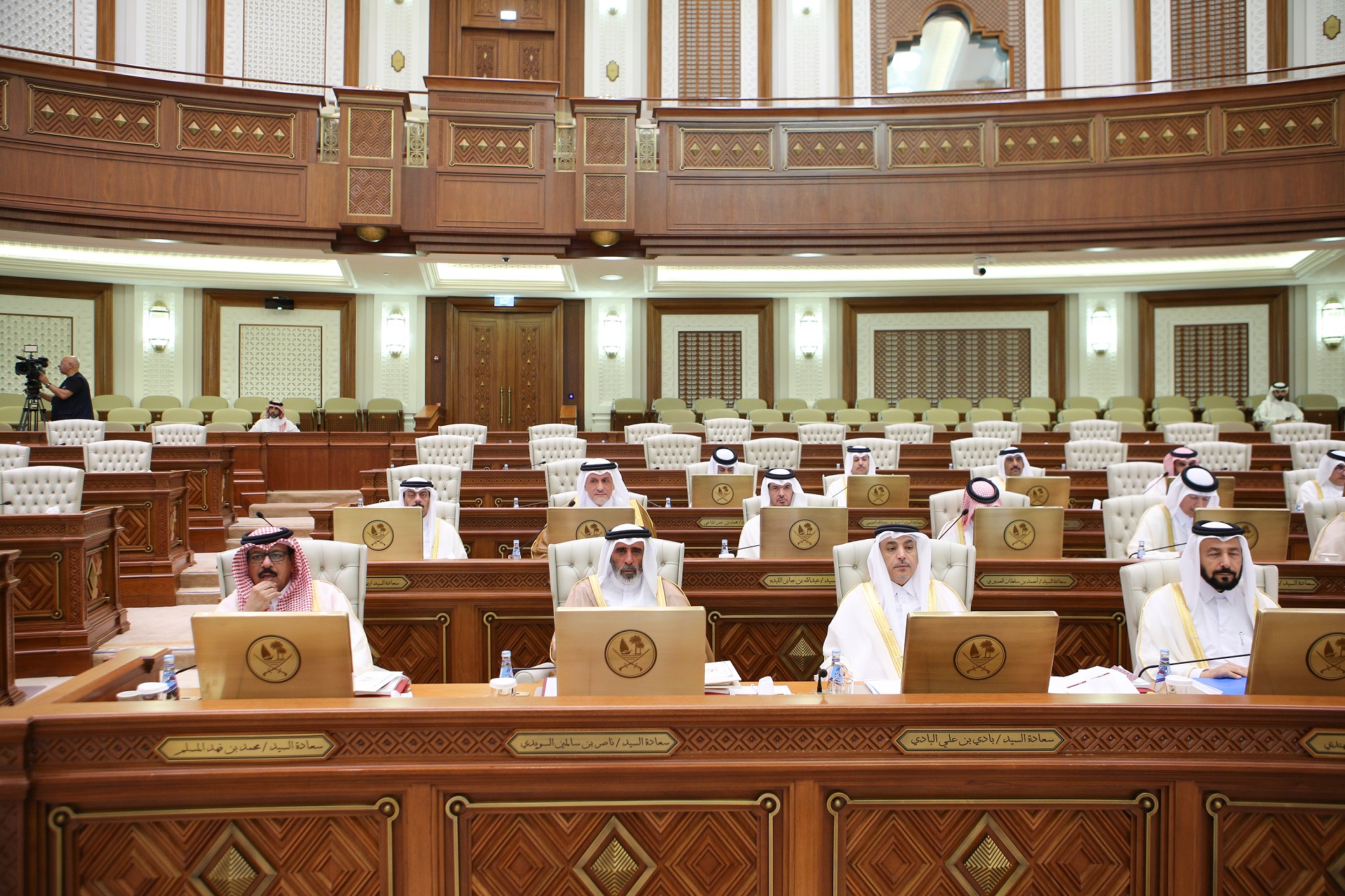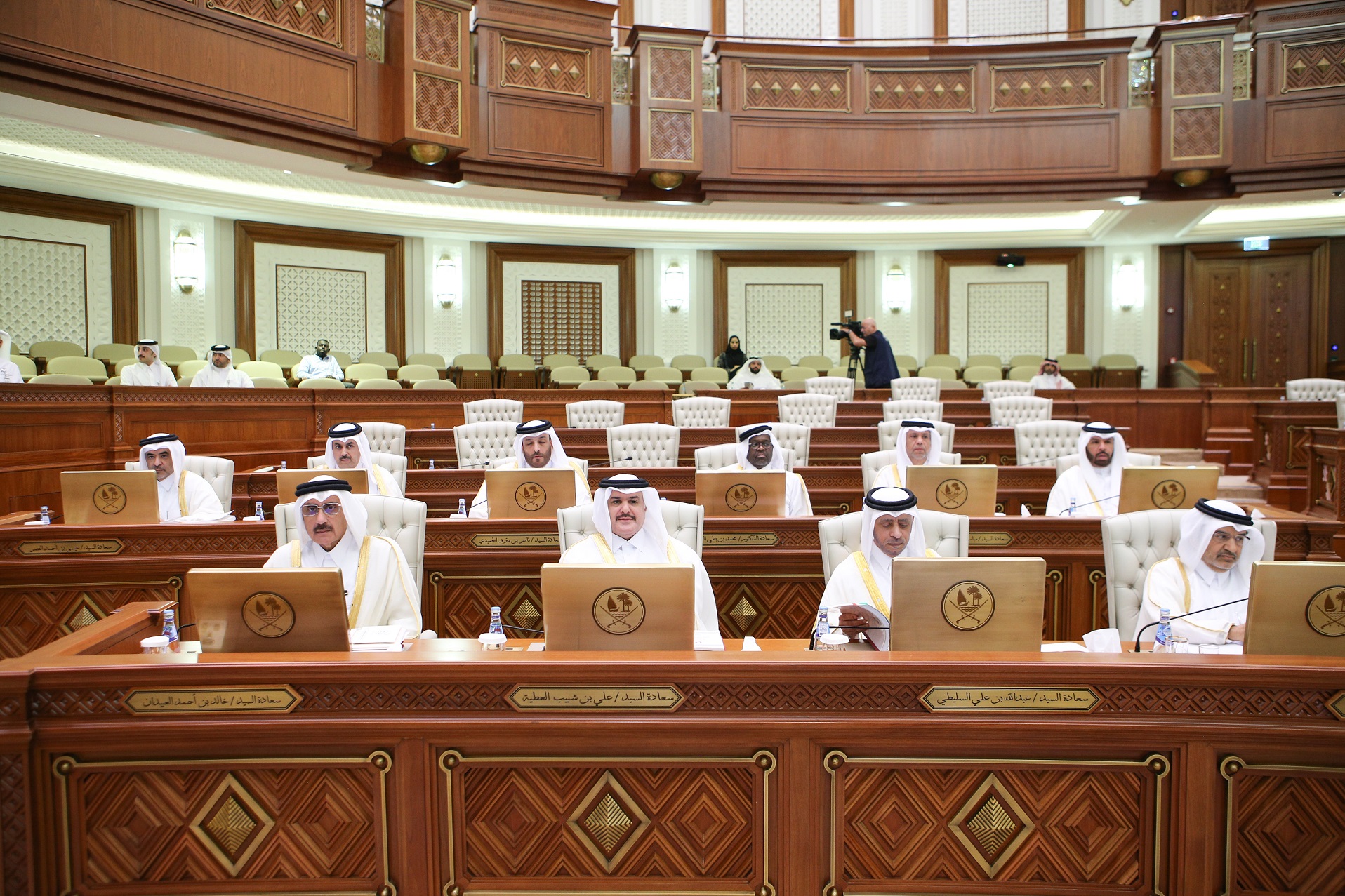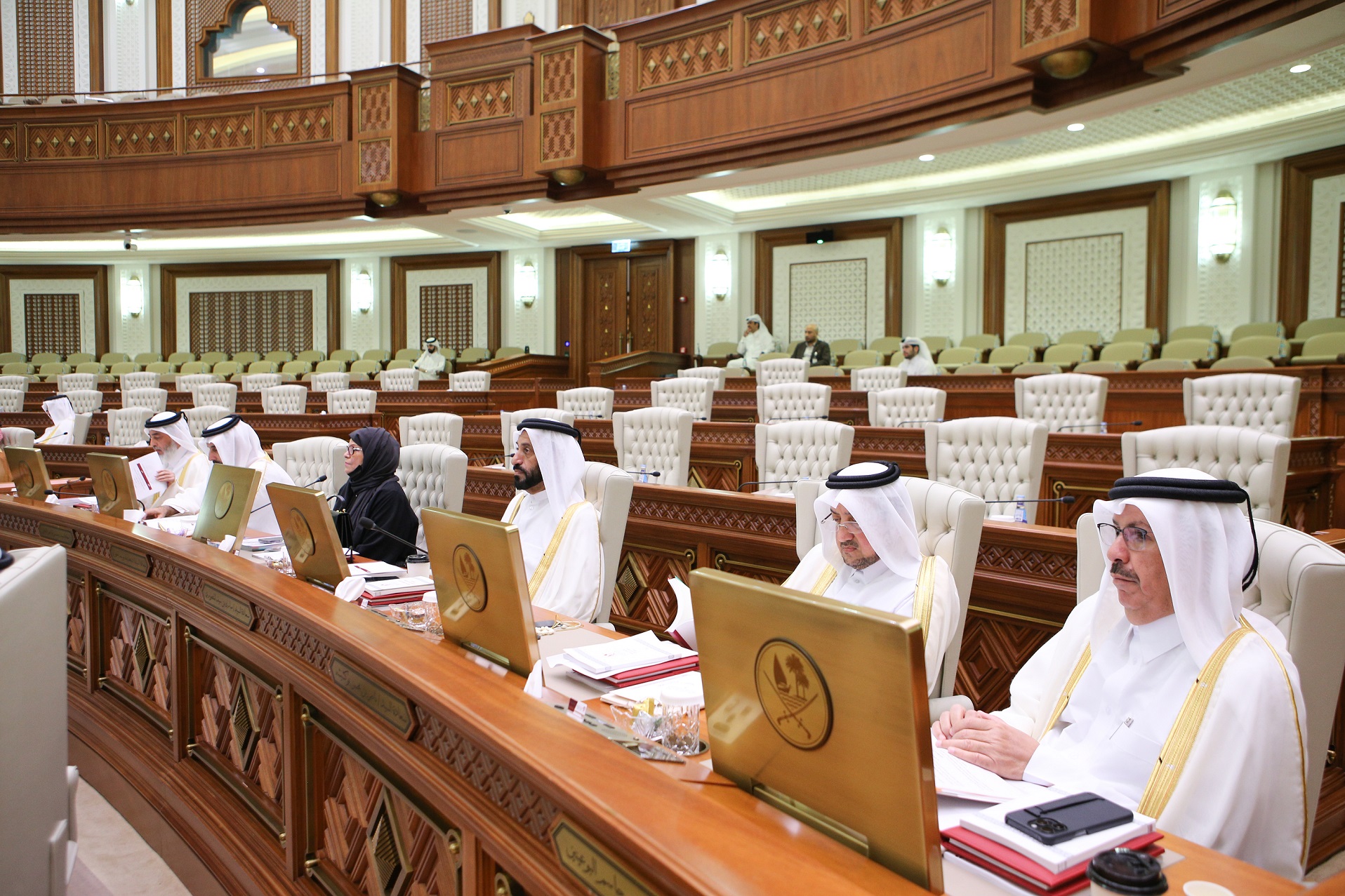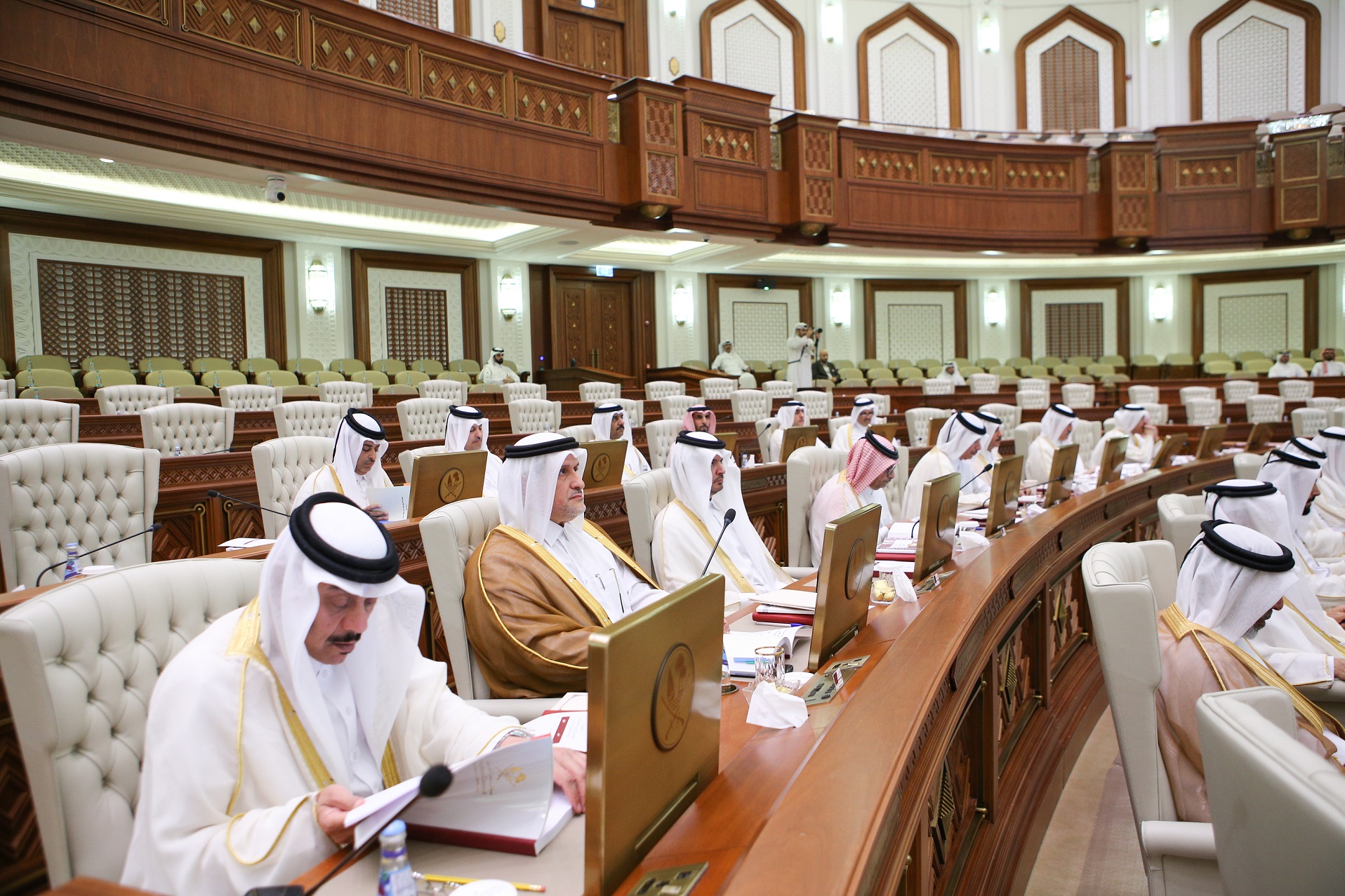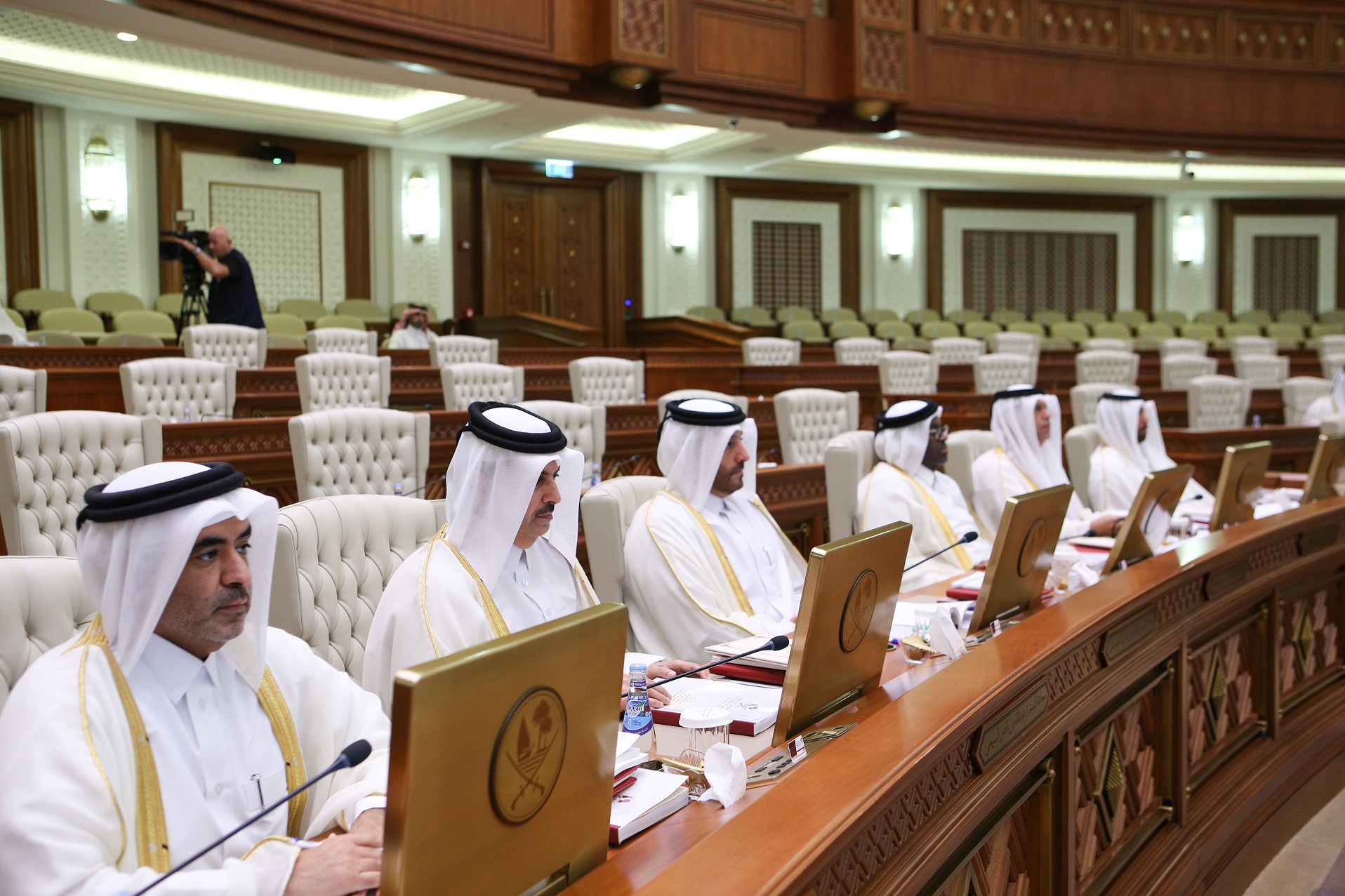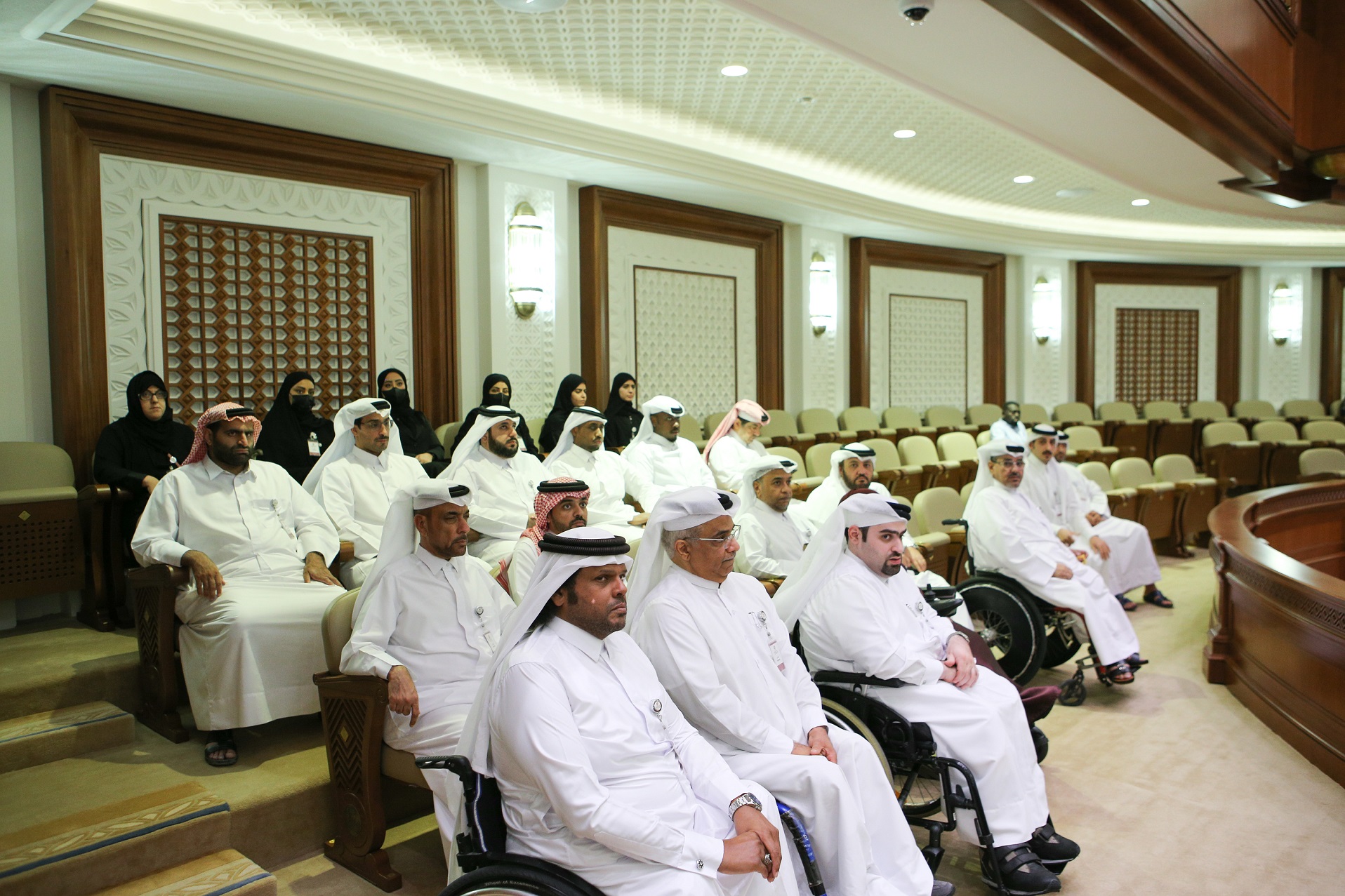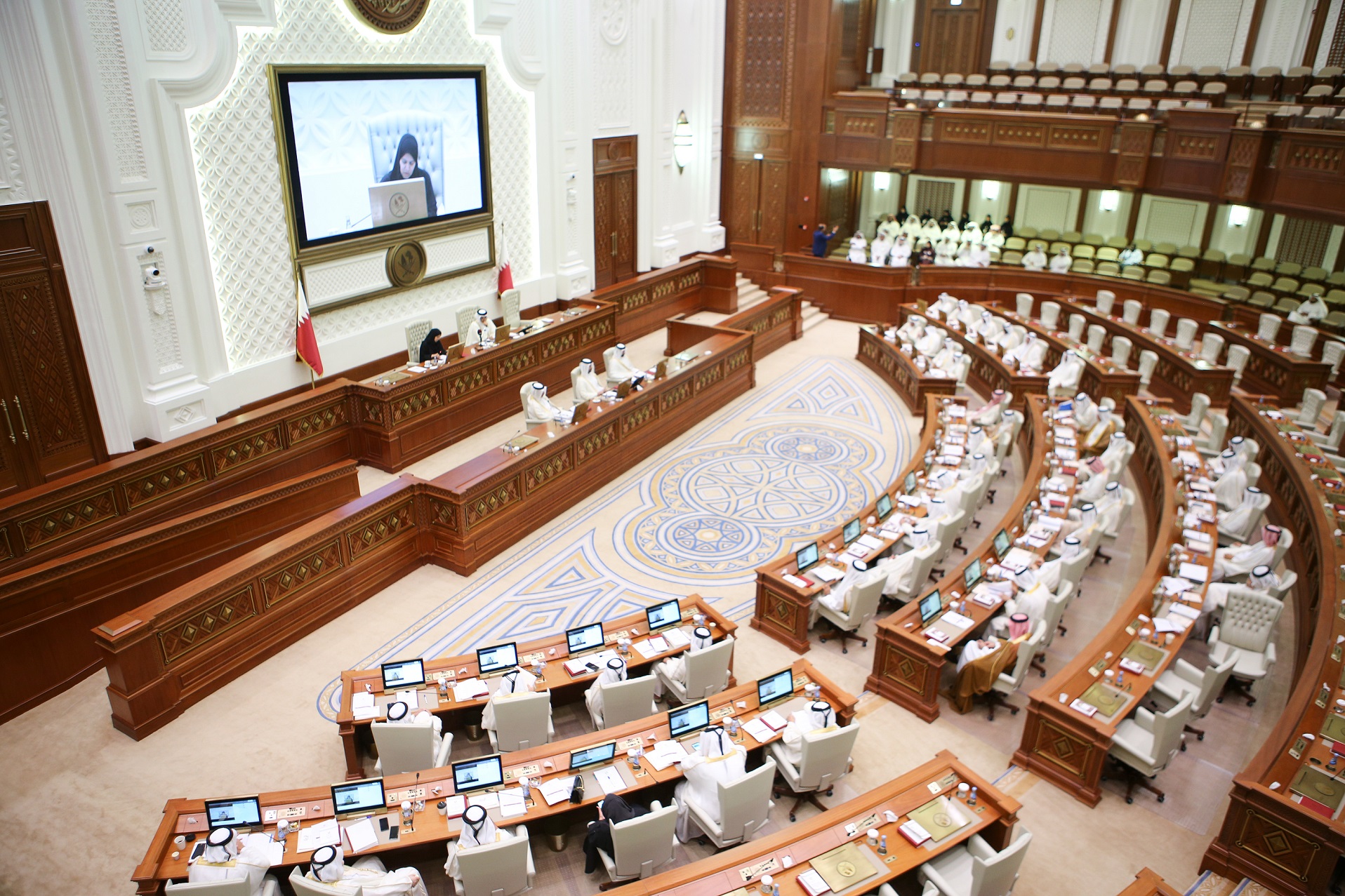Shura Council Holds Weekly Session, Discusses Situation of Persons with Disabilities
04 November 2024
The Shura Council held its regular weekly session today, under the chairmanship of HE Speaker of the Council Hassan bin Abdullah Al Ghanim.
At the outset of the session, HE Speaker of the Council Hassan bin Abdullah Al Ghanim hailed the directives of HH the Amir Sheikh Tamim bin Hamad Al-Thani, which aim to consolidate the principle of justice and the rule of law, in addition to promoting the values of equal citizenship and national unity for the supreme interests of the country.
His Excellency affirmed that the constitutional amendments to be presented for the general referendum on Tuesday represent a landmark step aimed at fostering these principles and the comprehensive development process to ensure further stability and progress for the State of Qatar.
In this context, His Excellency called on all citizens to exercise their national right by participating in the referendum and expressing their opinions with full responsibility and awareness.
He emphasized that this participation is not merely a national duty but rather an effective contribution to charting the country's future and reaffirming the spirit of patriotism.
He pointed out that contributing during such critical moments fosters partnership in decision-making, thereby strengthening the State of Qatar's stature and achieving citizens' aspirations for a bright future under the leadership of HH the Amir.
Thereafter, HE Secretary-General of the Shura Council Nayef bin Mohammed Al Mahmoud read out the agenda of the session and endorsed the minutes of the previous session.
During the session, the council discussed the public discussion request submitted by a number of Their Excellencies' members regarding the situation of persons with disabilities (PWDs).
Within this framework, HE Speaker of the Council Hassan bin Abdullah Al Ghanim noted the country's foremost priority, in accordance with the prudent guidance of the leadership, to support PWDs by allocating the necessary financial resources, enacting the laws that regulate their rights, including Law No. 2 of 2004 on PWDs, and endorsing international conventions that affirm PWDs' rights and provide them with essential services.
His Excellency highlighted that despite the extraordinary efforts and continuous support, PWDs still face challenges that require further attention, foremost of which are enhancing their full inclusion in the community and labor market and providing environments conducive to meeting their needs.
He likewise underscored the importance of stepping up efforts to elevate the community's awareness of disability issues and the role of the community in supporting PWDs to ensure equity and greater inclusion.
For their part, Their Excellences members of the council noted the country's interest in PWDs' rights in terms of legislative and executive aspect, in accordance with the wise leadership, including the provision of education opportunities for them through opening private schools that offer educational services, whether they are professional or schools that offer the inclusion programs.
Members of the council asserted that there are challenges facing PWDs, some of which are related to education, such as the rise in school fees and the schools' inability to offer all necessary supporting services.
Others are related to providing training and qualification opportunities due to the lack of training centers and institutions in the state to help qualify individuals with intellectual disabilities and autism spectrum disorder who are graduates of schools and centers but have not been able to complete their university education, so they can be prepared for the job market.
Members of the council pointed out that the lack of coordination among official bodies has generated a range of challenges facing PWDs, including the lack of awareness among PWDs and their families about all their rights and the services available to them, coupled with the absence of a unified professional database for PWDs, a lack of government training and rehabilitation centers for those who were unable to enroll in education at the mandatory education age, and the absence of a vocational technical college for high school graduates.
Additionally, members of the council addressed the challenges facing PWDs in the labor market, emphasizing the country's commitment to providing job opportunities for them, with at least 2% of total vacancies reserved for PWDs.
They highlighted several challenges in this regard, particularly the lack of a unified database that would facilitate the automatic transfer of data to the relevant organizations.
The absence of a job application mechanism prevents PWDs from applying for jobs through conventional methods due to various challenges they face. Furthermore, the lack of pre-employment training opportunities leads to problems when they begin working.
After discussions characterized by a commitment to finding solutions to the challenges facing PWDs and addressing the impediments that hinder their inclusion in the community, the council decided to refer the request for a public discussion to the Social Affairs, Labour and Housing Committee for further perusal and submission of its report to the council.
The session continued, during which the council reviewed a draft law amending certain provisions of Law No. 16 of 2018 regarding the regulation of non-Qataris' ownership of and rights over real estate, submitted by the esteemed government and decided to refer it to the Health, General Services and the Environment Committee for further perusal and submission of its report to the council.
The council also reviewed the esteemed governments response to the council's request regarding the regulation of private schools and referred it to the Education, Culture, Sport, Information Committee for further perusal and submission of its conclusions.
As part of the session's proceedings, the Shura Council approved an array of draft decisions for the executive provisions of the Internal Regulations of the Shura Council issued by Law No. 8 of 2024, following discussions and the exchange of views on them.
On the other hand, HE Speaker of the Council Hassan bin Abdullah Al Ghanim informed the members of the Shura Council about his meeting with HE Prime Minister of the Socialist Republic of Vietnam, Pham Minh Chinh, last Thursday.
He indicated that the meeting discussed bilateral relations between Qatar and Vietnam and ways to strengthen them, particularly in the parliamentary field, as well as several issues of shared interest.
Several staff members from PWD centers and associations in the State of Qatar attended the session.

